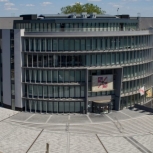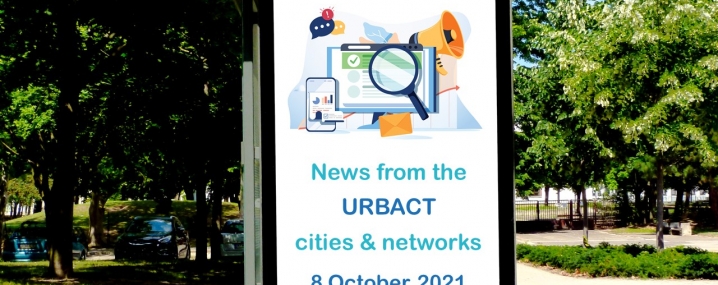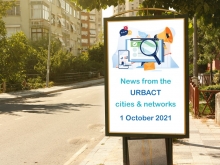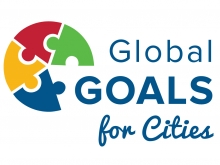
Mouscron
Mouscron first appeared in governmental texts around 1060, while the historic landmark, the castle of Mouscron, dates back to 1430. In 1769, the town was dominated by textile industry development. In 1975, Mouscron suffered from industrial decline and there was a territorial reform merging several municipalities and development started focusing on the agro-food industry. Being at the border with Flanders and France, both Flemish and French are spoken in the city, which is 15 km away from Lille. Revolting Calvinist Protestants involved in attacks and pillage in the 16th century have given the Mouscron population its surname “Hurlus”, and its folklore history is celebrated yearly at a commemorative event - the “Hurlus Festival”.
Mouscron is a heavily densely populated area, yet the city has kept two natural reserves of 11 hectares in the city, as well as 120 hectares green spaces. There are 2 976 natural species in Mouscron.
Mouscron has a long tradition of working on sustainable development, with a local Agenda 21 in place since 2011. Since 2018, the city has been working on adapting local policies to the SDGs. For example, the SDGs are integrated into the overarching Cross-functional Strategic Programme, a mandatory document for municipalities that covers all the city’s strategies, plans and projects under one umbrella for the 2018-2024 mandate period. This has been a challenging endeavour considering the number of projects and activities taking place across the city functions.
On a practical level, the city of Mouscron has developed a “sustainability barometer”, which allows its staff to rate any planned action against its potential impact on the SDGs, at the start and at the end of the intervention. The city has also worked with raising awareness - both internally and externally - for example through the radio broadcast “What if we changed”, producing monthly episodes for the last three years.
Since early 2021, the city has received coaching from the regional level on prioritising some of the SDGs for the city, and is currently working on the reformulation of a long-term strategy for the city, “Objectif 2030”. Aware that the SDGs are a holistic set of goals and targets, the local administration is reluctant to prioritise some goals over others. To at least have a more participatory view on priorities, beyond a small working group on the Objectif 2030, the city is launching an online survey for local residents to provide inputs on what they see as the top five priority goals for Mouscron. The participation and awareness raising with citizens has been made difficult by the pandemic, with many activities suspended.
As mentioned in the partnership section, Mouscron works by planning its actions according to the duration of the political mandates while keeping a medium-term view. To do this, they set up action plans such as the Municipal Nature Development Plan, the Waste Plan, the Urban Agriculture Plan, the Mobility Plan, the Social Cohesion Plan, etc.
SOME RELATED NETWORKS
Global Goals for Cities
News
News from our cities and networks – 1 October 2021
Article




